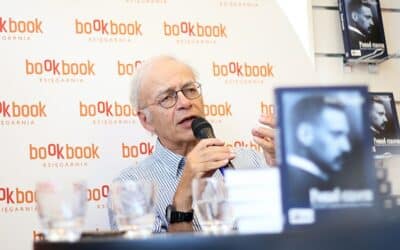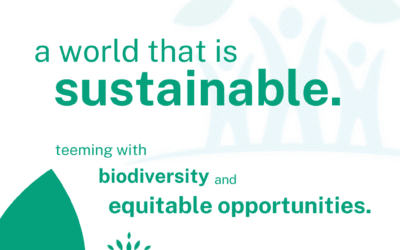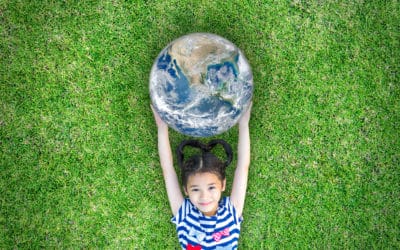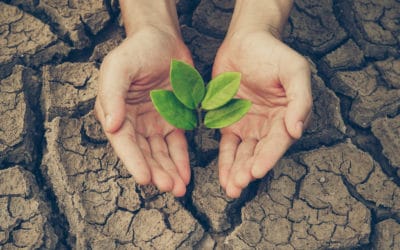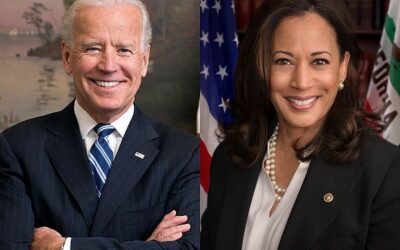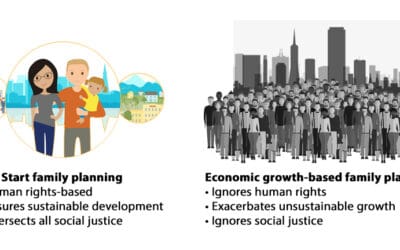The Model Up Close
These families are adopting the child centered Fair Start model: Smaller families working together to plan a fair start in life for every child. You can join them, protect your future, make a better world for all. You can make your voice heard.
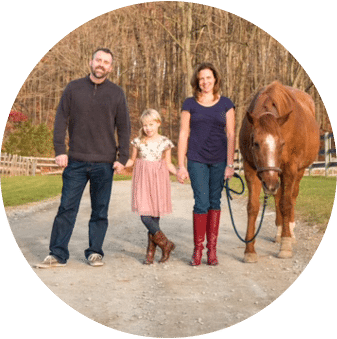
The Phelps-Mathews Family
Taking the Having Kids approach is important to us because we want to dedicate our time and resources to raising a child who is a conscious steward of our planet and the animals and people who call it home. At age 9, Willow has already raised nearly $11,000 by running 5K’s, doing one-mile lake swims, and sewing and selling cat toys to help homeless people and their pets, shelter dogs and cats and wildlife. She has eaten dinner with the homeless and protested the unfair treatment of chimpanzees abandoned in Liberia. She has been recognized for her work by the ASPCA and was awarded the ASPCA Kid of the Year in 2016. Being working parents, having one child allows us to foster an environment where we can encourage Willow in her endeavors to make the world a better place. We believe that having one child will reduce our carbon footprint and will hopefully leave a better environment for generations to come.
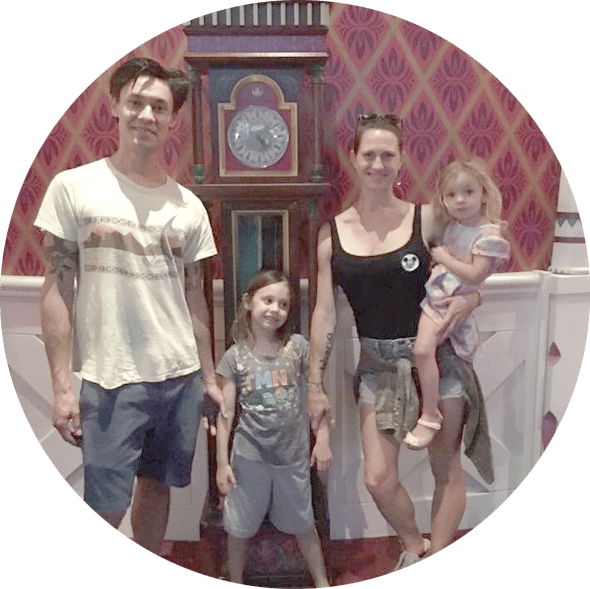
The Bhotiwihok Family
Before discovering Having Kids’ Fair Start Model, we did not know there were other ways to approach family planning. Instead, we relied on generational, social, and cultural norms passed down to us. After considerable thought, we adopted the Fair Start Model, because it just made sense. We are a family of four in which both parents work. Like all parents, we want the best for our children. We are also thinking of the big picture. The Fair Start Model provides an indispensable tool for families and children. Participation in the Fair Start Model demonstrates our commitment to a brighter world for all children.
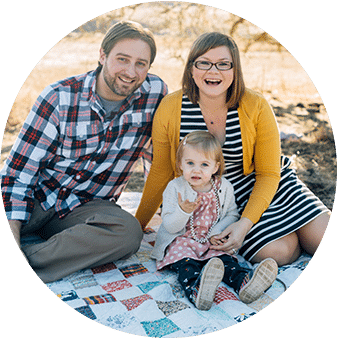
The Marsh Family
We support Having Kids first and foremost because we believe we can provide the best life for our only daughter if we do not give her a sibling. First, with only one child, we are free to dedicate our collective resources—whether emotional, educational, financial, or recreational—to one person. Next, we will replace two trash-producing, water-wasting, fossil-fuel burning humans with one. Indeed, as global temperatures creep up causing ocean acidification and (eventually) a massive extinction event, it only makes sense to limit our carbon legacy as much as possible. Finally, it’s truly about living our values. We want our daughter to know that her parents did everything they could to build a better future for her and for our community as a whole. We teach her to love nature, appreciate the interconnectedness of life, and appreciate the past. By embracing the Having Kids model, she will learn from us as we lead by example, and hopefully one day she will grow into a bright, compassionate, thoughtful woman. For us, the decision to have one child was almost instinctive. Once she arrived to reshape our world, we knew we were complete; our family was whole.
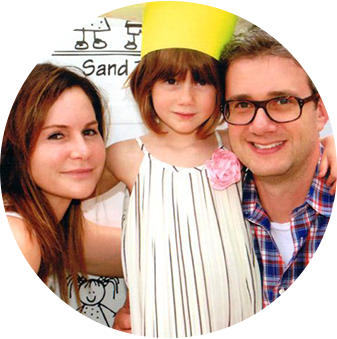
The Evans Family
The decision to have one child was initially difficult. It became easier as I spoke with other families who had multiple children. I made a decision to focus my resources on one rather than have them compete. By making this decision, I have made a step towards a better life for my child and the community. The Having Kids model is consistent with my belief that change starts at home. Connecting with other like-minded people ensures a better world for my children and grandchildren. Becoming a parent has made me want to connect with others to prompt change. The Having Kids model provides me with a way to accomplish these goals.
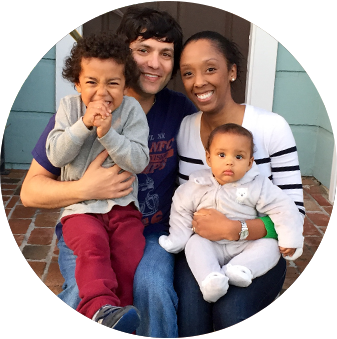
The Hamity Family
We fully support the model that Having Kids promotes, in large part because we believe that our commitment to a smaller family allows us to be better parents and citizens of the world. Rather than devoting time, energy, and resources to additional children, we have chosen instead to be more present in our son and daughter’s lives. Our commitment to a smaller family also allows us to dedicate ourselves, both financially and professionally, to causes we care deeply about, including universal access to quality healthcare and education, as well as the protection of animals from institutionalized cruelty. Through the Having Kids model, we hope to show our children the potential for minimizing environmental harms while maximizing opportunities for other children and families to thrive.

The LaMaster Family
Jon and Astrid waited until their careers were advanced before having their two boys because they wanted them to have the best start in life possible. Consequently, they’ve decided not to have more kids. That’s partly thanks to their belief in ohana, the Hawaiian concept of the intentional family rather than the biological one. It emphasizes the notion that families and their friends are bound together and that all members of the ohana must cooperate and help one another for the benefit of every member. Jon and Astrid have elected to use the time and resources that would have gone into creating a larger family to help the families around them, the ones that will help determine the world their own children inherit. They are aware of the relationship between the family size choices we all make today, our world’s environment, and kids’ quality of life. They are hopeful that other families will join them too.

An Anonymous Family
We strongly believe in small, nurturing families, but we have been reluctant to speak publicly about this issue out of a fear that we would offend one or more of our family or friends. We have a number of friends, both older and around our age (30s-40s) who have chosen to have larger families. On other issues, these folks are thoughtful and conscientious, but the question of how many kids to have is something that they view as uniquely personal and outside the realm of fair debate or discussion. It is very difficult to talk to someone you love about how you wish they were not having a third or fourth kid.
As for us, keeping our family small has always been a priority. We are both busy professionals and our time and money can only be spread so far. With a smaller family, we have money for travel, cultural events, and other fun outings that simply would not be possible if we had more kids. With a smaller family, we can travel and visit grandparents and all comfortably fit in their home for holidays. And with a smaller family, both of us are able to engage in a considerable amount of pro bono public service work. We spend hundreds of hours per year doing volunteer work for our communities and for non-profits, and this would not be possible if we had a larger family.
In their Words
Parents share their perspectives on the Having Kids blog.
Urge Peter Singer to Acknowledge the Truth
This year, Fairstartmovement.org is launching the Tell the Truth campaign, calling on prominent social justice figures to acknowledge their failures as the climate crisis worsens and claims millions of lives. At the root of these failures is the neglect of a...
Don’t Get Scammed: Is Your Charity Going Backwards?
The climate crisis exposes a fundamental problem in public interest work: how can a system that perpetuates inequality and environmental destruction be truly in the public interest? Millions will die from heat waves, yet many charities and funders claim to be helping...
It’s Time to Tell the Truth: Have Nonprofits Misled Supporters by Hiding Unsustainable Growth Policies?
As the climate crisis deepens, with massive heatwaves killing untold number of people, and pregnant women and infants being harmed by even the current rise in world temperature, many are wondering how the world came to such a state. Many nonprofits have been touting...
A Short History of How We Ruined Our Planet and Became Vastly Unequal, and Who to Target for the Fix
In the 20th Century world population growth exploded. That growth is continuing, and fundamentally driving massive inequity of wealth and power between the rich and poor as the conditions of our birth hang upon us throughout our lives. We are getting more crowded and...
Open Letter to Joe Biden’s Administration: The Most Effective 3 Changes for 2021
Having Kids is an international human rights organization dedicated to improving family planning systems worldwide with a simple idea: Every child has a fundamental human right to a Fair Start in life, ecologically and socially, which overrides all competing...
Urge Peter Singer to Acknowledge the Truth
This year, Fairstartmovement.org is launching the Tell the Truth campaign, calling on prominent social justice figures to acknowledge their failures as the climate crisis worsens and claims millions of lives. At the root of these failures is the neglect of a...
Don’t Get Scammed: Is Your Charity Going Backwards?
The climate crisis exposes a fundamental problem in public interest work: how can a system that perpetuates inequality and environmental destruction be truly in the public interest? Millions will die from heat waves, yet many charities and funders claim to be helping...
How Fake Liberals Enabled Musk and the Climate Crisis And Why Real Change Goes Beyond Left vs. Right
In the mid-20th century, world leaders deliberately ignored the interests of future children and political equity when shaping reproductive rights. This likely stemmed from their unwillingness to invest in racially equitable birth, development, and emancipatory...
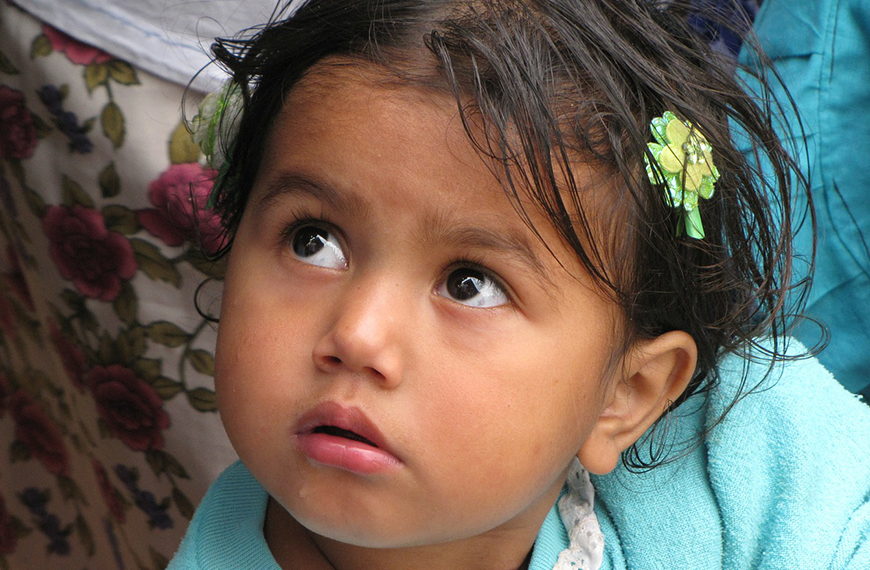
Adopt the Model
If these values resonate with you, join the movement. By adopting the Responsible Parenting model, you’re showing your commitment to providing a better life for your children and your children’s children.

